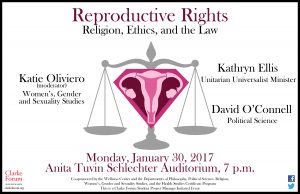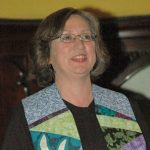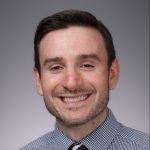 Monday, January 30, 2017
Monday, January 30, 2017
Anita Tuvin Schlechter Auditorium, 7 p.m.
Panelists:
Kathryn Ellis, Unitarian Universalist minister
David O’Connell, assistant professor of political science, Dickinson College
Katie Oliviero (also moderator), assistant professor of women’s, gender and sexuality studies, Dickinson College
This panel will explore contemporary religious, ethical and legal debates and realities concerning reproductive rights in the United States.
This event is sponsored by the Clarke Forum for Contemporary Issues and co-sponsored by the Wellness Center and the Departments of Philosophy, Political Science, Religion, Women’s, Gender & Sexuality Studies and the Health Studies Certificate Program. This event was organized by the Clarke Forum’s student project managers.
Biographies (provided by the panelists)
 Kathryn Ellis retired from the active Unitarian Universalist ministry on June 30, 2016. Before seminary and ordination, she was a mental health counselor, a college counselor, a professor of counseling and a psychotherapist in private practice in Carlisle, PA. She is a trained facilitator for Our Whole Lives, a comprehensive sex education curriculum created by the Unitarian Universalist Association and the United Church of Christ. This is a sex affirmative and spiritual curriculum.
Kathryn Ellis retired from the active Unitarian Universalist ministry on June 30, 2016. Before seminary and ordination, she was a mental health counselor, a college counselor, a professor of counseling and a psychotherapist in private practice in Carlisle, PA. She is a trained facilitator for Our Whole Lives, a comprehensive sex education curriculum created by the Unitarian Universalist Association and the United Church of Christ. This is a sex affirmative and spiritual curriculum.
Kathy has been told that one never really stops being a minister. She knows that one never really stops being a psychotherapist. All of her career has been spent in listening and caring.
As a woman psychologist, most of her clients were women and indeed, most of those women were of reproductive age. Many of them had been sexually abused or assaulted. Probably almost all had experienced some form of sexual harassment. Very early in her career, she worked briefly as a counselor at an abortion clinic. She says she has never met a woman damaged from an abortion, but she has met some damaged by anti-abortion ideology.
Kathy was an undergraduate student between 1967 and 1971 at the height of the Women’s Liberation Movement, Second Wave Feminism. This was before the Roe v. Wade decision, before the birth control pill was easily available for unmarried women and long before the morning after pill was invented. Kathy was a feminist before knowing the word and has always been happy to call herself a feminist. She regrets that in her day there were no women’s studies, no gender studies and no women’s history classes, but she has always educated herself.
Kathy is married to Richard Heckman, director of financial aid at Dickinson College. They are the parents of one adult daughter.
 David O’Connell is an assistant professor of political science at Dickinson College. His research interests include the presidency and religion and politics. Professor O’Connell’s research has been published in Presidential Studies Quarterly, and his first book, God Wills It: Presidents and the Political Use of Religion, was recently re-released in paperback. Professor O’Connell is a frequent media commentator on American politics, having appeared on C-SPAN, ABC27, CBS21, FOX43, and WITF, and he has been interviewed by print outlets ranging from CNN to The Christian Science Monitor to the Pittsburgh Post-Gazette. Professor O’Connell received his M.A., M.Phil., and Ph.D. in political science from Columbia University, and holds a B.A. in political science and economics from the University of Pennsylvania. Currently, Professor O’Connell is finishing work on a statistical study that analyzes the ways in which Catholic members of Congress explain their positions on abortion.
David O’Connell is an assistant professor of political science at Dickinson College. His research interests include the presidency and religion and politics. Professor O’Connell’s research has been published in Presidential Studies Quarterly, and his first book, God Wills It: Presidents and the Political Use of Religion, was recently re-released in paperback. Professor O’Connell is a frequent media commentator on American politics, having appeared on C-SPAN, ABC27, CBS21, FOX43, and WITF, and he has been interviewed by print outlets ranging from CNN to The Christian Science Monitor to the Pittsburgh Post-Gazette. Professor O’Connell received his M.A., M.Phil., and Ph.D. in political science from Columbia University, and holds a B.A. in political science and economics from the University of Pennsylvania. Currently, Professor O’Connell is finishing work on a statistical study that analyzes the ways in which Catholic members of Congress explain their positions on abortion.
 Katie Oliviero is an assistant professor in Dickinson’s women’s, gender and sexuality studies department. Her teaching and research specializations include a transnational feminist analysis of how law, culture and social movements approach questions of reproductive justice, LGBTQ studies, immigration, and disability. Her book, Precarity Politics: How Conservatives and Progressives Mobilize Vulnerability and Risk in Political Debate builds from these specializations and is forthcoming from NYU press. Her reproductive justice research is particularly concerned with how antidemocratic forces over the past decade mobilize narratives of pain, disgust, vulnerability, informed consent and disability to restrict women’s access to health care, governmental benefits, abortion and birth control. Additional publications about same-sex marriage debates, immigration politics, gun laws and vulnerability politics appear in Debating Same-Sex Marriage in the Lesbian and Gay Movement (Minnesota UP 2013), Feminist Formations (2013, 2016); Signs (2011); and Women’s Studies International Forum (2009). A new project explores if concepts of precarity and resilience can rework existing feminism global justice frameworks, with an emphasis on sexual asylum policies, migration, women’s peace movements and disability. Oliviero holds a Ph.D. and M.A. in gender studies from UCLA, and a B.A. in women’s studies from Dartmouth College. Before joining the Dickinson faculty in 2014, Oliviero was a 2012-2014 American Council of Learned Societies New Faculty Fellow at the University of Colorado, Boulder’s women and gender studies program and law school. As a recipient of a 2010-2012 postdoctoral fellowship at Emory University School of Law, she taught classes in both the gender studies doctoral program and the law school under the auspices of the Feminism and Legal Theory Project as well as the Vulnerability and Human Condition Initiative.
Katie Oliviero is an assistant professor in Dickinson’s women’s, gender and sexuality studies department. Her teaching and research specializations include a transnational feminist analysis of how law, culture and social movements approach questions of reproductive justice, LGBTQ studies, immigration, and disability. Her book, Precarity Politics: How Conservatives and Progressives Mobilize Vulnerability and Risk in Political Debate builds from these specializations and is forthcoming from NYU press. Her reproductive justice research is particularly concerned with how antidemocratic forces over the past decade mobilize narratives of pain, disgust, vulnerability, informed consent and disability to restrict women’s access to health care, governmental benefits, abortion and birth control. Additional publications about same-sex marriage debates, immigration politics, gun laws and vulnerability politics appear in Debating Same-Sex Marriage in the Lesbian and Gay Movement (Minnesota UP 2013), Feminist Formations (2013, 2016); Signs (2011); and Women’s Studies International Forum (2009). A new project explores if concepts of precarity and resilience can rework existing feminism global justice frameworks, with an emphasis on sexual asylum policies, migration, women’s peace movements and disability. Oliviero holds a Ph.D. and M.A. in gender studies from UCLA, and a B.A. in women’s studies from Dartmouth College. Before joining the Dickinson faculty in 2014, Oliviero was a 2012-2014 American Council of Learned Societies New Faculty Fellow at the University of Colorado, Boulder’s women and gender studies program and law school. As a recipient of a 2010-2012 postdoctoral fellowship at Emory University School of Law, she taught classes in both the gender studies doctoral program and the law school under the auspices of the Feminism and Legal Theory Project as well as the Vulnerability and Human Condition Initiative.
Video of the Panel Discussion
